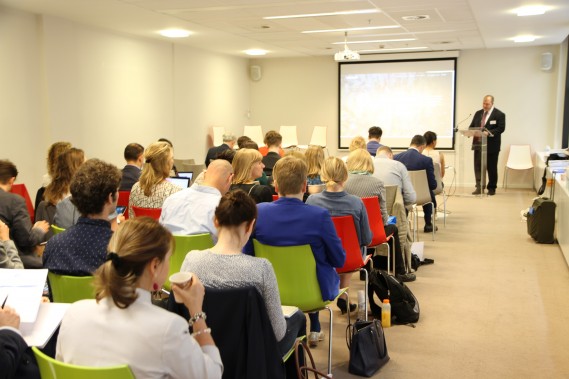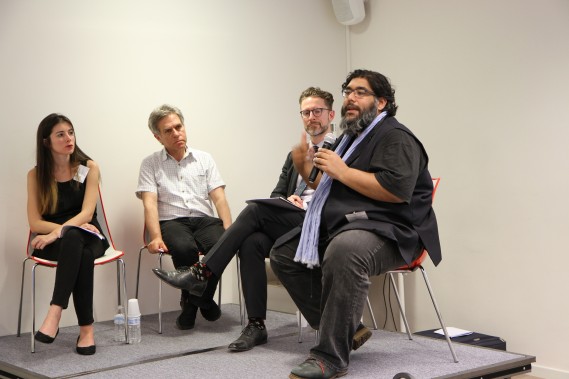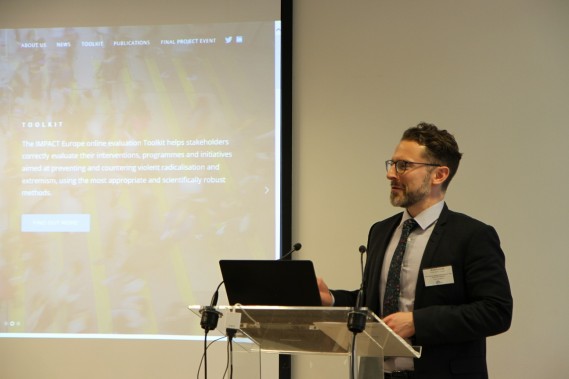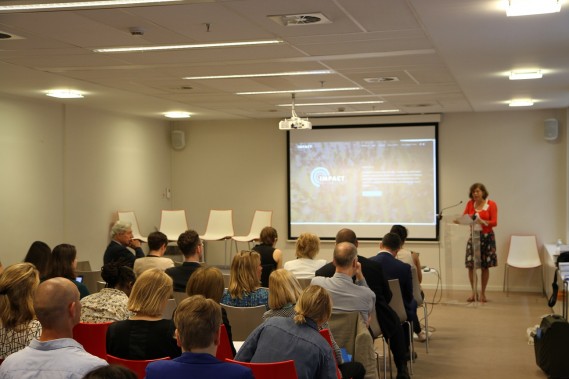

Preventing and tackling violent extremism – what works best?
Wednesday, 31 May 2017, 09h00-17h00
Science 14, Rue de la science 14b, 1040 Brussels
Background information
Tackling violent radicalisation and extremism have been a top priority for the EU and the Member States ever since the 9/11 attacks and the Madrid and London bombings in 2004 and 2005 respectively. Indeed, over the past decade, there has been considerable investment in policies and interventions across Europe aimed at preventing and countering violent radicalisation and extremism. Yet, practitioners within Member States often still find it challenging to measure the effectiveness of their work and to learn from it.
In an attempt to contribute to the ongoing efforts within Europe to establish ‘what works’ in preventing and tackling violent radicalisation and extremism, IMPACT Europe aims to help evaluators, policy-makers, frontline workers and academics working in these fields. Specifically, IMPACT Europe has developed an electronic, evaluation toolkit that enables the evaluation of policies and interventions preventing and tackling violent radicalisation and extremism. The toolkit also helps professionals in the public and voluntary sectors to integrate promising practice into the design and implementation of new programmes.


Event summary
On 31 May 2017, the IMPACT Europe consortium held a public conference on “Preventing and tackling violent extremism – what works best?” in Brussels. The conference gathered around 80 policy-makers, practitioners, academics and other participants, who examined the current security context, addressed existing and emerging measures and approaches in dealing with violent radicalisation, and underlined the role and contribution of proper and robust evaluation in establishing what works best in this field. The event also marked the completion of the IMPACT Europe project and the launch in the public domain of the online evaluation toolkit that enables the evaluation of policies and interventions which aim to prevent and counter violent extremism.
The day’s discussions were opened by Alexandra Antoniadis, Head of Sector in Prevention and Radicalization at DG Home, who gave a keynote speech which highlighted the ways in which the European Commission is putting research and evaluation at the centre of its efforts to support Member States in preventing and countering violent radicalisation and extremism. Antoniadis also stressed the timeliness of the IMPACT Europe project’s outcomes.
Panel discussions focussed on the wider security context in which the phenomena of violent radicalisation and extremism exist, and the different EU and national responses that have been developed within this landscape. Participating experts spoke about ongoing measures to prevent and counter violent radicalisation and extremism (P/CVE), the existing evidence of their effectiveness, and how the work of the IMPACT Europe project fits into current and future activity. Emerging approaches to P/CVE were also discussed, with a particular emphasis placed on drawing transferable learning and practices from related areas of social intervention such as community engagement, gang desistance, restorative justice, and peacebuilding. Panel experts focussed in particular on identifying known good practices and shortfalls in the field, and on the opportunities to improve P/CVE policy and programming.
The day’s discussions were lively and wide-ranging, indicative of the diversity of actors and perspectives which are relevant to P/CVE work.
Event materials and publications
A summary of conference proceedings will be made available shortly in the project publications section.
The conference programme, including speaker biographies, are available to download here.
